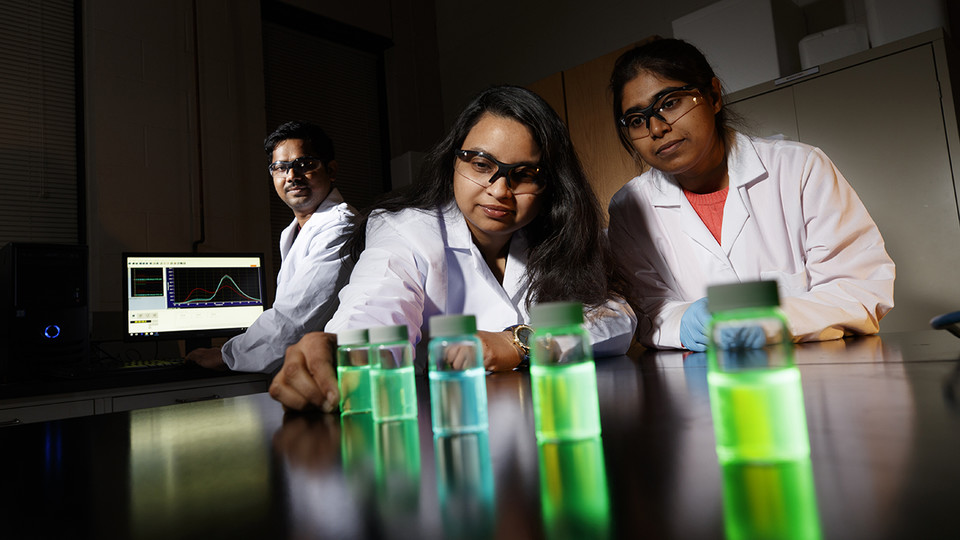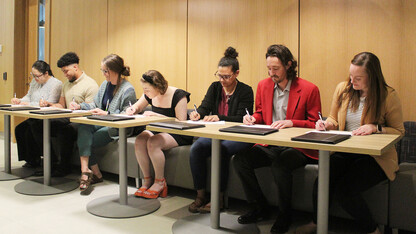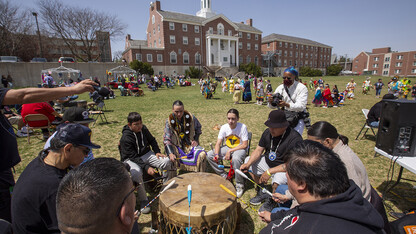· 3 min read
Dishari adds DOE, university awards to accolades

Shudipto Dishari has been at the University of Nebraska–Lincoln for only three years, but she’s already earning plenty of attention for innovative work in both the laboratory and the classroom.
It’s recognition that Dishari, assistant professor of chemical and biomolecular engineering, said not only has opened doors professionally but also helped validate career-path decisions.
“I think I have already explored some of those doors,” Dishari said. “These awards tell me that I’m doing the right things, and I should keep doing those things.”
Dishari was recently named one of 73 recipients of an Early Career Award from the Department of Energy’s Office of Science. The award is given to scientists from national laboratories and academic institutions across the United States for research that helps the DOE further its mission.
Dishari’s research aims to design new polymer materials that will improve energy efficiency and storage, potentially in devices such as fuel cells and redox-flow batteries.
In spring 2018, Dishari also received a National Science Foundation Faculty Early Career Development Program Award. She’s using the five-year, $600,000 grant to explore nanoscale phenomena in polymers at the interfaces of non-precious metal catalysts and to help in developing thin electrochemical devices.
The DOE award comes on the heels of Dishari receiving the University of Nebraska–Lincoln’s Harold & Esther Edgerton Junior Faculty Award in April. The Edgerton Award, presented since 2000, typically honors a faculty member in their third year of pre-tenure status who demonstrates “creative research, extraordinary teaching abilities and academic promise.” She became the fifth College of Engineering faculty member to receive the university award.
Dishari sees the awards as an opportunity to learn enough to branch off into a different area: entrepreneurship.
“Hopefully, these awards will be the stepping stones for my future work,” she said. “If we can demonstrate that these materials are working well, then at some point I might be interested in pursuing a spinoff company through which I would be able to design and commercialize these polymers.
“I don’t know much about starting a business, but what I’ve learned throughout my life is that if you don’t know something, just jump into it and learn as much as you can.”
Another key component of the three awards is education and teaching, areas that Dishari said require as dynamic an approach as any research path.
Dishari said the thermodynamics course she teaches is more “abstract and theoretical” than some other engineering courses, and it requires the teacher to be good at planning and listening.
That’s why she uses techniques that develop deeper connections with her students: explaining subjects in multiple ways during lectures, rearranging assignment and test schedules for busy students, and taking student feedback from mid-semester surveys to change plans for classes.
“I try to do simple things in class to help maximize the understanding of the students, and I try to engage all of my students in an organic way,” Dishari said. “Together we make a customized game plan to improve and, in turn, they feel more motivated and connected.
“Engineering students always want to know how their education connects to real situations. I try to help them tie these loose ends into real-life knots.”







